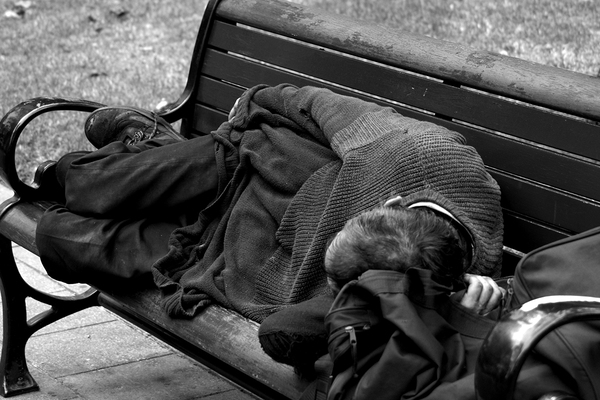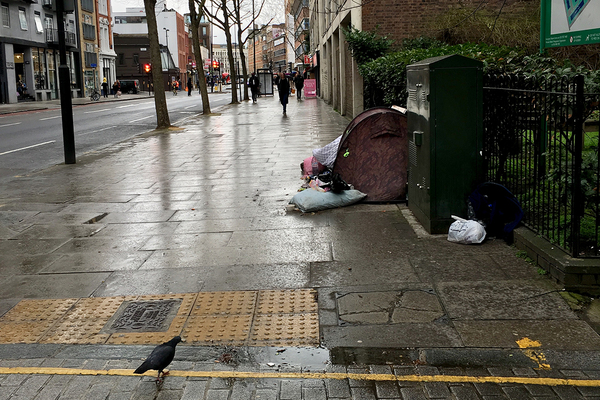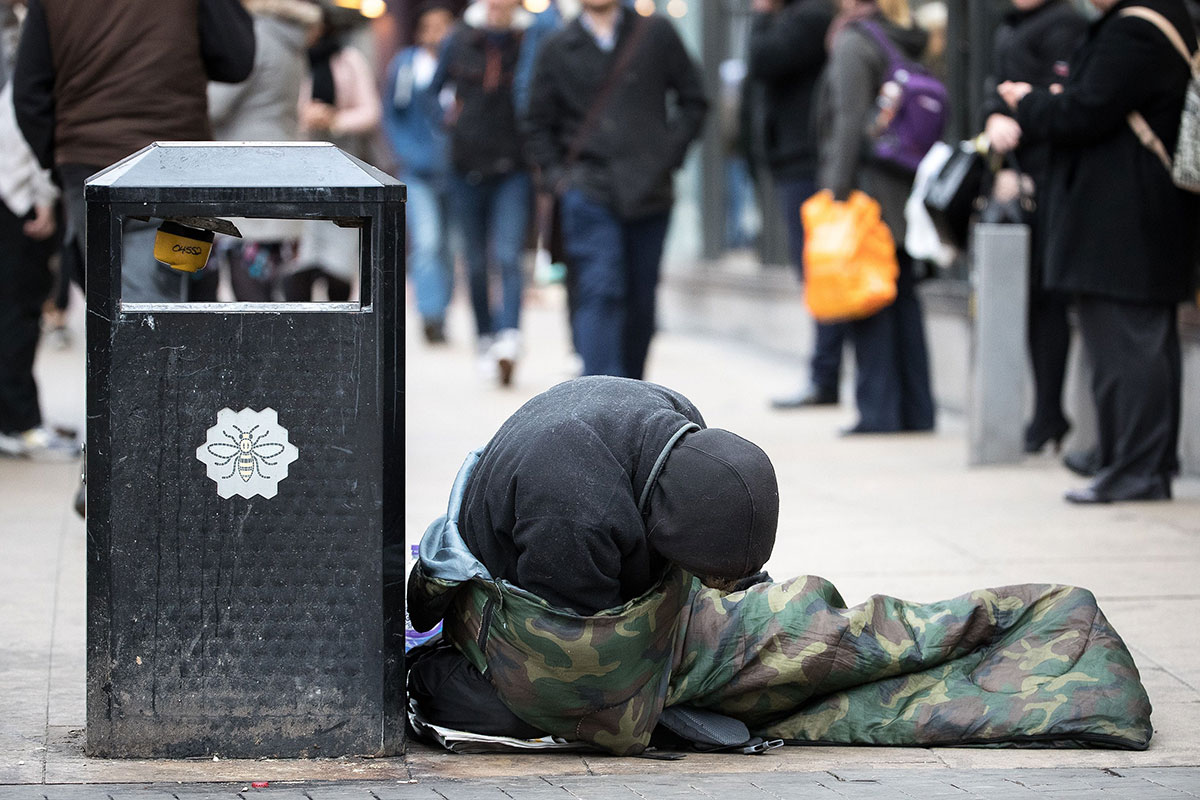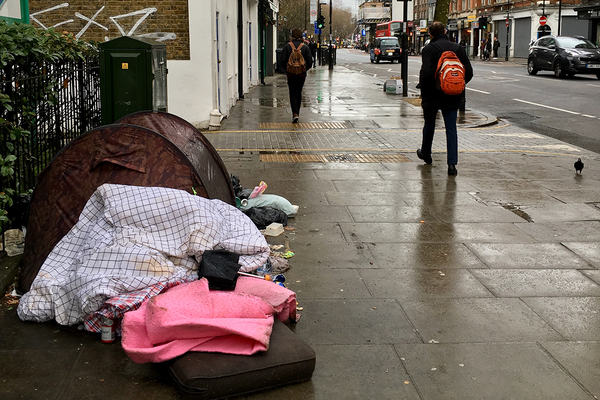Government launches rough sleeping strategy with £100m funding pledge
The government has launched its new rough sleeping strategy, with £100m of funding to help 6,000 street homeless.
The announcement is pitched as a step towards the government’s aim of ending rough sleeping entirely by 2027.
It sets out a three-pronged approach of prevention, intervention and recovery aimed at offering “comprehensive support” to ensure the specific needs of vulnerable rough sleepers are addressed.
Housing secretary James Brokenshire said: “It is simply unacceptable that people have to sleep on our streets and I am determined to make it a thing of the past.
“Whether people are at risk of rough sleeping, already on the streets or in need of settled accommodation, we now have a solid plan to help the most vulnerable in our society.”
The prevention element of the strategy involves “understanding the issues that lead to rough sleeping”.
The government said it will be “listening to individual groups (like LGBT people)” and launching pilots to assist prison and care leavers find sustainable accommodation.
The intervention element will involve £17m to expand the Somewhere Safe to Stay pilots to help people at risk of rough sleeping have their needs assessed quickly.
It will also involve £30m of NHS funding over five years to provide better health care for rough sleepers.
The final element, prevention, will involve £50m of funding to increase housing supply outside of London for people who have slept rough or are moving on from hostels and refuges.
It said £19m will go to providing “flexible support” in homes provided exclusively for people sleeping rough.
Experts will be placed in Jobcentres and an unspecified amount of funding will be provided to help “grow enterprises” which can support rough sleepers.
Since the Conservatives came to power in 2010, rough sleeping has risen 169% from 1,768 to 4,751 according to the official statistics.
David Orr, chief executive of the National Housing Federation, said: “People sleeping on the streets because they don’t have a home of their own is a desperate situation and one that needs to be tackled as a matter of urgency.
“We welcome the government’s intent to end rough sleeping by 2027. There is much to be valued in this strategy – practical measures and new funding that will really help ease the current situation.
“But if we’re to bring about a lasting end to rough sleeping we need targeted investment in new homes for rough sleepers, a significant increase in homes for social rent overall, and a full assessment of the impact of welfare reform on rough sleeping.”
John Healey, shadow housing secretary for Labour, said: “Rough sleeping has more than doubled since 2010 thanks to decisions made by Tory ministers, but today’s feeble plan lacks any urgency. The scale of the problem is clear now but the government’s target means waiting almost a decade to deal with this crisis.”
Cathy at 50 campaign
Our Cathy at 50 campaign calls on councils to explore Housing First as a default option for long-term rough sleepers and commission Housing First schemes, housing associations to identify additional stock for Housing First schemes and government to support five Housing First projects, collect evidence and distribute best practice.
Housing First: The seven key principles
- People have a right to a home so Housing First prioritises access to housing as quickly as possible without any conditions other than the willingness to maintain a tenancy. Individuals won’t lose the tenancy if they disengage from or no longer require support.
- Flexible support is provided for as long as it is needed with housing providers committing to long-term, flexible support without a fixed end date.
- The housing and support are separate – so housing is not conditional on engaging with the support. The offer of support remains if the tenancy fails.
- Individuals have choice and control. They have the choice, where possible, about where they live. Accommodation should be pepper-potted and self-contained, unless an individual says they would prefer shared housing.
- Active engagement. Staff proactively engage clients and caseloads are small. Support provided as long as clients need it.
- The service supports people to identify their strengths and goals and to develop skills and knowledge to achieve them.
- A harm reduction approach is used – so individuals who, for example, self-harm are supported to undertake practices which minimise the risk of them self-harming.
Source: Housing First England













